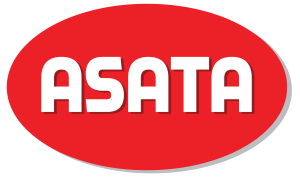Coronavirus: Commission proposes a Digital Green Certificate
The European Commission is proposing to create a Digital Green Certificate to facilitate safe free movement inside the EU during the COVID-19 pandemic.
The Digital Green Certificate will be a proof that a person has been vaccinated against COVID-19, received a negative test result or recovered from COVID-19.
In a letter to its members, the commission said:
The Commission has just adopted a Communication on ‘A common path to a safe and sustained re-opening’. It charts the way ahead for a balanced policy and common EU approach, pointing to what needs to be done to advance the time when we can recover our European way of life, and do so in a safe and sustainable way with control over the virus. While the epidemiological situation requires continued control until a sufficient vaccination coverage is achieved, the conditions must be created across the Single Market to allow for safe and sustained re-opening, so that citizens can enjoy their rights and economic and social activity can resume.
Key steps and tools set out by the Commission (with relevance for the travel and tourism industry):
Digital Green Certificates
- The Commission has adopted a legislative proposal establishing a common framework for a Digital Green Certificate covering vaccination, testing and recovery (see also Q&A and factsheet). This is an EU level approach to issuing, verifying and accepting certificates to facilitate free movement within the EU, based on a strict respect for non-discrimination and of the fundamental rights of EU citizens.
Main elements of the proposal:
- Digital Green Certificate system covers three different types of COVID-19 certificates: a vaccination certificate, a test certificate, and a certificate of recovery.
- They can be issued and used in all EU Member States to facilitate free movement. All EU citizens and their family members as well as non-EU nationals staying or residing in the Member States and who have the right to travel to other Member States, would be eligible to receive them free of charge.
- The certificates should only include a minimum set of information necessary to confirm and verify the holder’s vaccination, testing or recovery status.
- Being vaccinated will not be a pre-condition to travel. All EU citizens have a fundamental right to free movement in the EU and this applies regardless of whether they are vaccinated or not. The same principle applies to the rights of non-EU nationals staying or residing in the EU Member States and who have the right to travel to other Member States. The Digital Green Certificate will make it easier to exercise that right, also through testing and recovery certificates.
- A technical framework will be defined at EU level, to be put in place by mid-June, to ensure security, interoperability, as well as full compliance with personal data protection. It will also allow the possibility to extend to compatible certificates issued in third countries.
A European framework for COVID-19 response measures
- The European Centre for Disease Prevention and Control is setting out a framework to help Member States take decisions on implementing restrictions. The approach will define tiers reflecting the epidemiological situation in each Member State. It will allow simulations to illustrate how much leeway each Member State has to reduce response measures without risking a reversal in the spread of the virus. An interactive digital tool developed by ECDC will be operational in April for use by Member States.
Guidance to support additional testing and tracing strategies
- Self-tests for COVID-19 (both self-swabbing and self-testing kits) are now starting to enter the market. ECDC will publish today a technical guidance on COVID-19 self-tests, including details on their availability, their clinical performance compared to the “gold standard” RT-PCR tests, their implications for reporting and epidemiological surveillance, and the settings for their appropriate use.
- Digital Passenger Locator Forms can be used by Member States to collect data from cross-border travellers entering their territory. In order for Member States to exchange relevant data through the exchange platform developed by the Commission and EASA, the Commission published today draft measures establishing the necessary legal conditions for processing such personal data, to be adopted by the time of the summer travelling season.
Helping the tourism and culture sectors to prepare for safe re-opening
- In the tourism and hospitality sector, the Commission has asked the Standardisation Organisation, CEN, to develop, in cooperation with industry and Member States, a voluntary sanitary seal to be used by establishments. This deliverable will be available by summer.
- The Commission will promote EU cultural heritage sites and cultural routes, as well as cultural events and festivals, through an EU social media campaign on sustainable cultural tourism.
Next Steps
The European Parliament and the Council should fast-track discussions, reach an agreement on the proposal for a Digital Green Certificate, and agree an approach to a safe opening based on a solid scientific framework. The European Commission will continue supporting the ramping up of vaccines production, and pursue technical solutions to increase interoperability of national systems to exchange data. Member States should accelerate vaccination programmes, ensure that temporary restrictions are proportionate and non-discriminatory, designate contact points to collaborate on wastewater surveillance and report on efforts made, and launch the technical implementation of the Digital Green Certificates in view of the fast-tracked adoption of the proposal.
In June 2021, upon request by the European Council, the European Commission will publish a paper on the lessons learnt from the pandemic and the way towards a more resilient future.
For more information on the Digital Green Certificate, click here.





